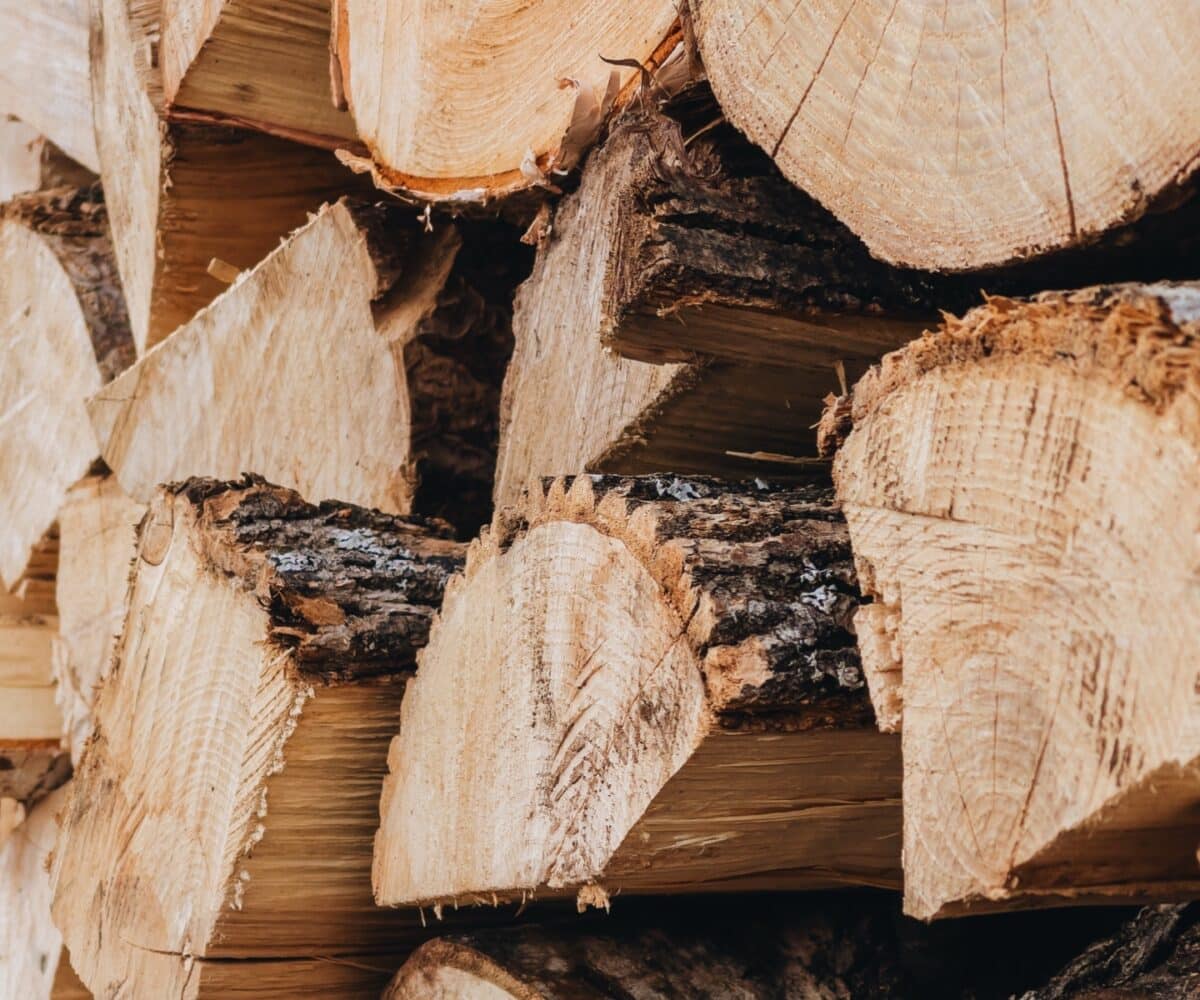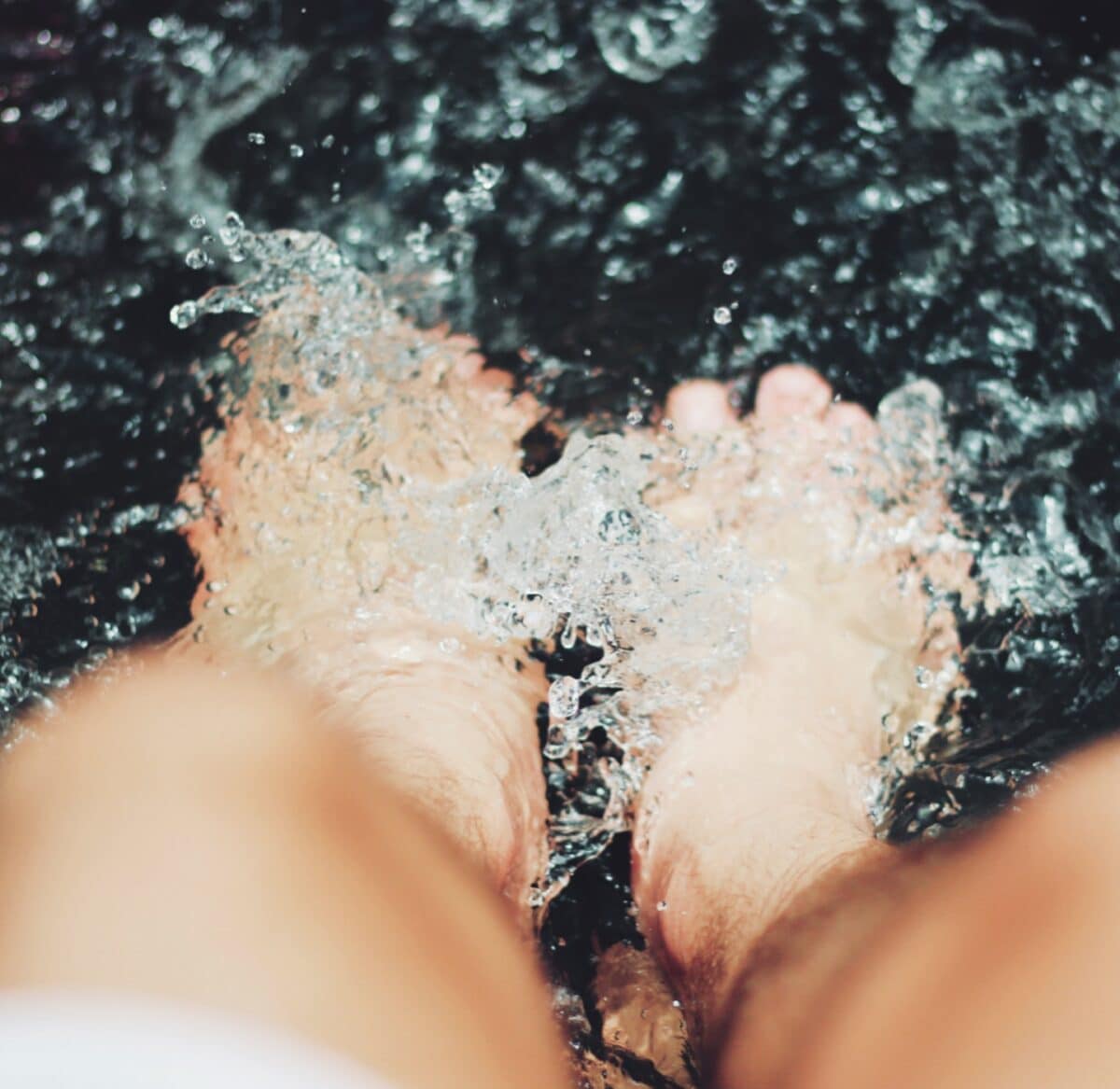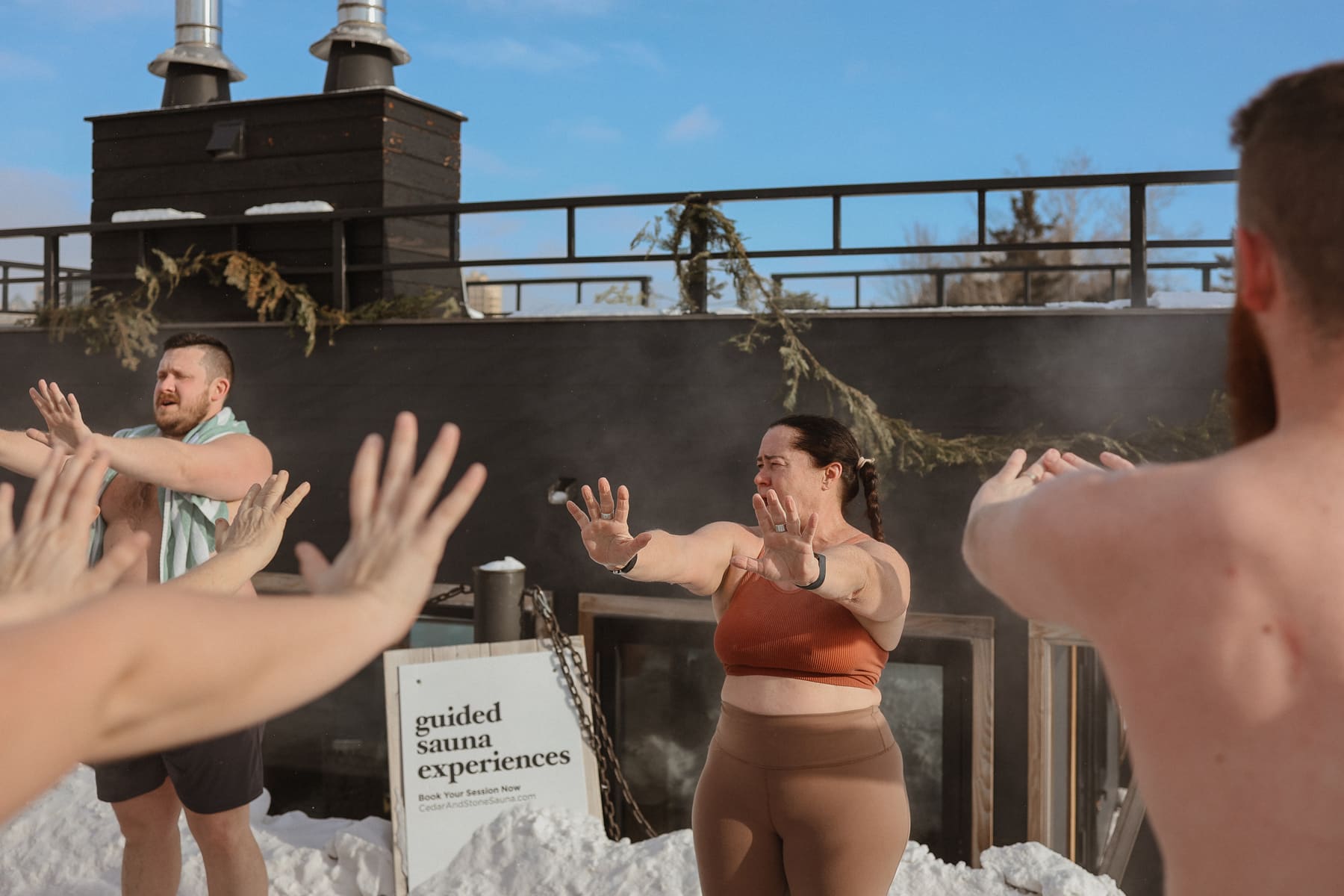
How guided contrast therapy provides community, connection, and peace for those in recovery—or for people just looking for alcohol-free socializing.
Jen Veralle knows how important it is to find a social scene that doesn’t revolve around drinking.
The co-founder of Sauna and Sobriety, an organization that hosts social events combining sauna with non-alcoholic drinks, Jen has been sober since 2014. After a few years of sobriety, she found herself frustrated with the lack of nonalcoholic social options.
“Having to be in those spaces that centralized alcohol, I just felt like, ‘Am I ever gonna get out of this? Is it always gonna be awkward socially, and is it always gonna feel like I don’t belong?’” she said.
Then in 2017 she went to her first guided sauna and cold immersion experience in Minneapolis, Minnesota and was immediately hooked.
“Nobody asked me why I wasn’t drinking, and I didn’t have to refuse alcoholic beverages offered to me,” Jen said.
Jen said she could finally be in an adult social setting and focus on the conversation and community instead of worrying about alcohol or feeling out of place.
“I could kind of open up again,” Jen said.
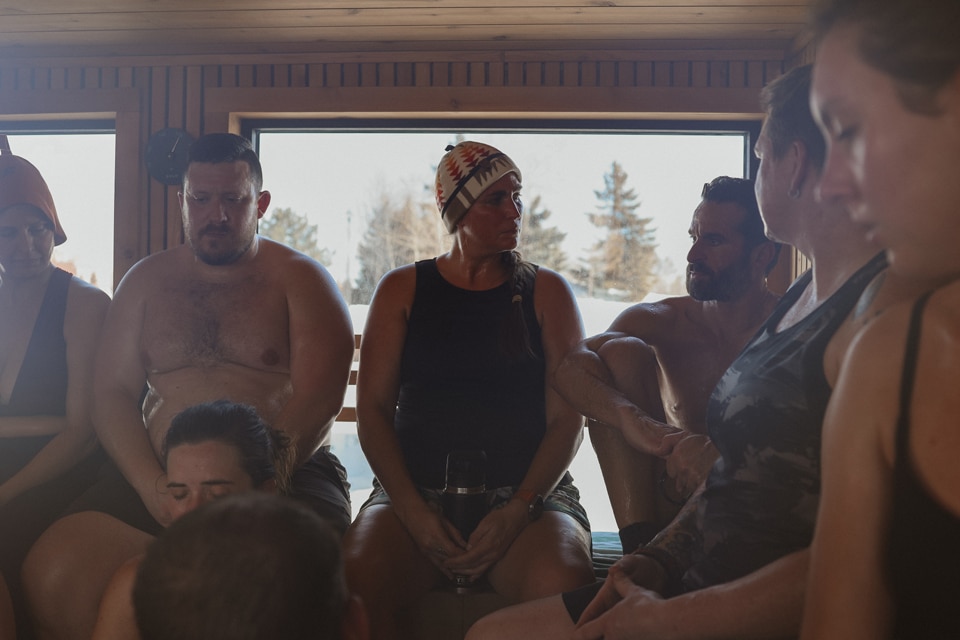
Sober Socializing
As she began incorporating contrast therapy into her life, Jen realized cold plunge and sauna offers more than simply an alcohol-free social setting.
For people in recovery, especially early recovery, Jen said it’s valuable to pause and find ways to rewire the brain to help break the cycle of addiction. While finding new, healthy activities—like taking up golf or going to the gym—is important, Jen said it’s essential for people in recovery to spend time in reflection.
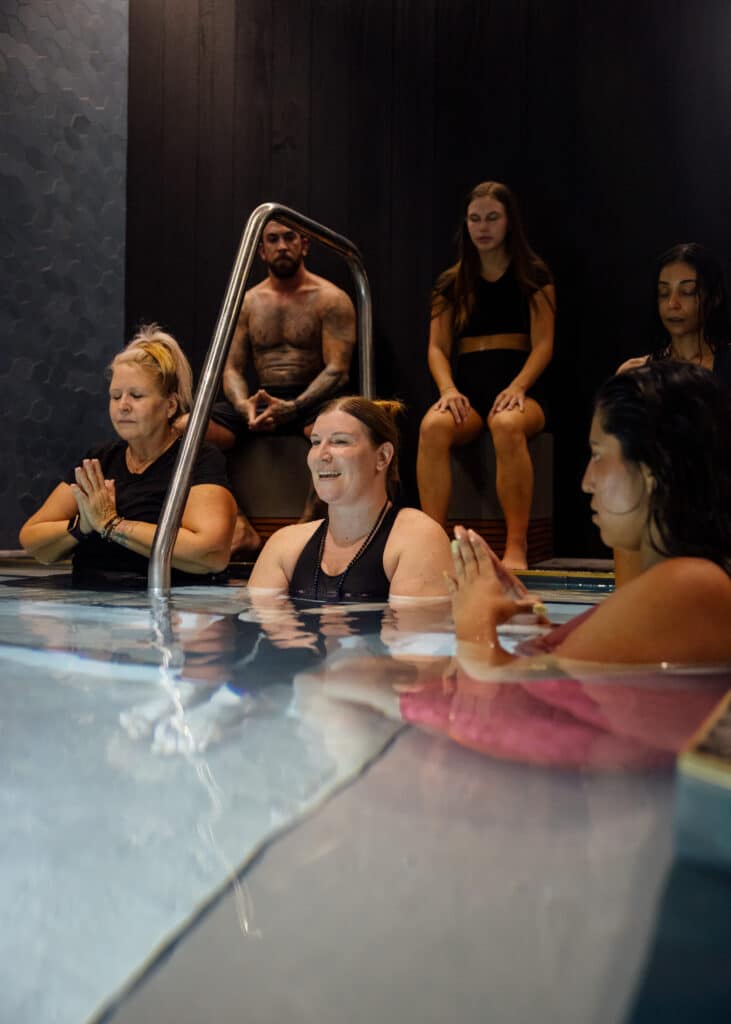
The New Happy Hour
How the guided sessions at Revivery deepen the sauna and cold plunge experience. The first time Jason C. went to a Revivery session he came...
Read More“Active sports like pickleball and all those things are great, but they don’t have that space to contemplate and understand that you know you’re uncomfortable and yet you’re moving through it,” Jen said.
This means that when you’re offered that drink the next time you can pause, remember your sobriety, and refuse the drink.
“So many people get tripped up in social spaces,” Jen said, “because they just don’t have the opportunity to take a breath and hold true to their intention for a sober evening.”
The same is true for people looking to cut back on their drinking, who don’t enjoy bars and want to find a social setting that doesn’t depend on alcohol. Both the sober and the sober curious need ways to find community without drugs or alcohol.
As Johann Hari wrote in Chasing the Scream, his book about addiction, “the opposite of addiction isn’t sobriety, it’s connection.”
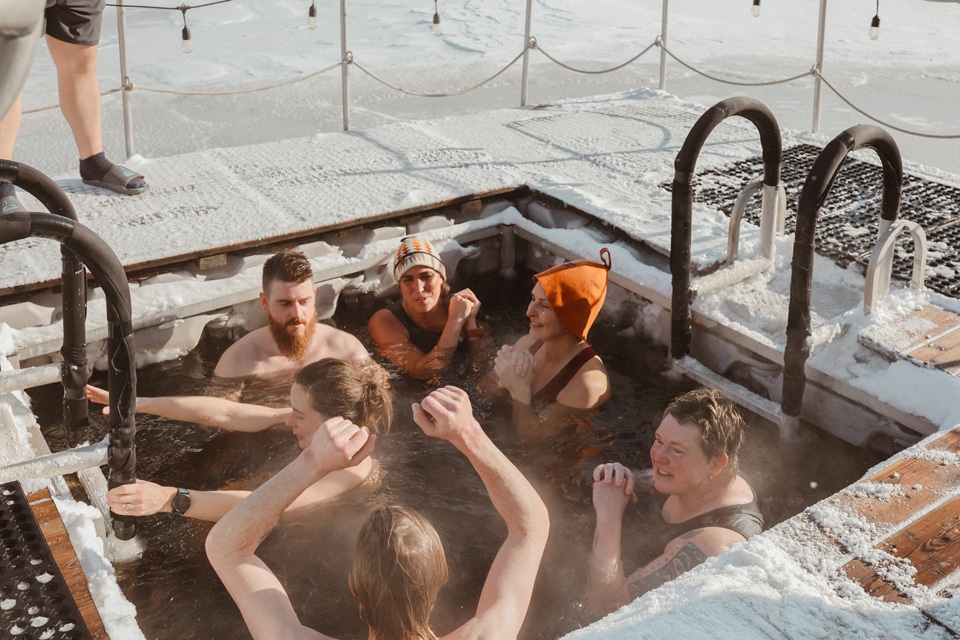
Recovery and Community
Drinking and smoking weed began taking over Molly H.’s life when she was in graduate school.
She’d been diagnosed with depression and anxiety, and was taking medication for both, but she still found she couldn’t function well without being drunk or high.
“It was affecting my day-to-day life,” Molly, now 24, said, “and things sort of spiraled out of control in 2023.”
So, at age 22, Molly dropped out of grad school and entered an in-patient substance abuse recovery center for a month. When she got out, newly sober and unsure what to do next, Molly decided to move back in with her parents.
“I wasn’t in school. I didn’t have a job,” she said. “There were a lot of unknowns at that time.”
Looking for ways to navigate her new sober reality, Molly began attending yoga classes at a facility owned by the cofounder of Revivery, Annette Scott. The facility also offered guided sauna and cold plunge sessions.
“I saw people doing this sauna and cold plunge thing when I was there,” she said, so she decided to try a class.
In guided contrast therapy, often in an hour-long class format, the group alternates between sauna and cold plunge, accompanied by a trained leader who manages the time in the heat and cold while taking the participants through breathwork and meditation sessions. At Revivery, the leads also facilitate conversation and connection, sparking dialogue that is sometimes silly, sometimes deep and meaningful.
Soon Molly was spending her time painting, doing yoga, working at the facility’s front desk—and regularly participating in cold plunge and sauna sessions.
Once she experienced the guided sessions, working on breathwork and meditation throughout, Molly began to see the benefits of contrast therapy. In fact, she said she felt some of the same euphoria and elevated mood she used to feel from drugs and alcohol.
“I didn’t make those connections at the time, because I was so out of my element. I wasn’t taking care of myself, so the idea of being in cold water to be healthy was just so confusing but I knew I felt good,” she said.
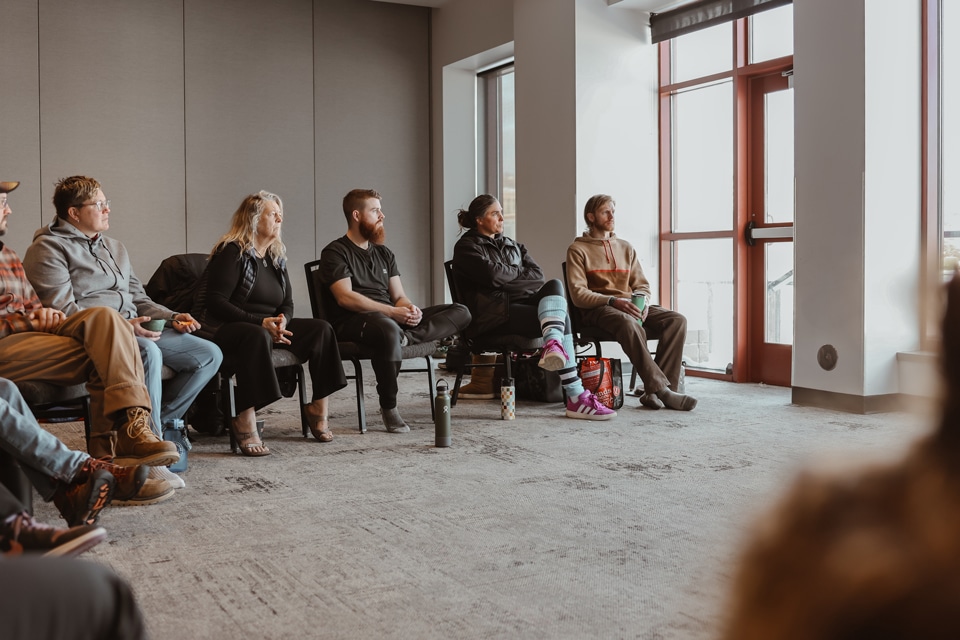
Calm and Connection
Now, two years later, Molly has a full-time job and is sober, in large part, she said, due to the community she found within yoga and guided cold plunge and sauna.
While recovery communities like Alcoholics Anonymous are invaluable and time-tested, many people find they also want a social space that doesn’t revolve around drinking, a place where people care about health and are open to connecting with others. For many people, that space is guided sauna and cold plunge.
Like Molly, many people who struggle with addiction have co-occurring disorders that can include anxiety, depression, and mood disorders.
Once they are sober, people living with co-occurring disorders still experience mental health issues that can threaten their newfound sobriety. This means it’s important to find ways, like a regular cold plunge and sauna routine, to regulate the nervous system, reduce stress levels, treat depression, and promote relaxation. While Molly continues to work with a psychiatrist and take medicine to treat her anxiety and depression, she finds yoga and contrast therapy to be an invaluable part of her sober life.
One reason, she said, are the social and emotional connections she’s made within her cold plunge and sauna sessions.
“I saw this thriving community at the studio and I wanted to be part of it. I was making all new friends, trying to find people who are seeking to better themselves, and then I started to realize that there’s quite a few people like me,” she said.
What kept Molly coming back, showing up again and again—staying sober and working through her anxiety and depression—she said, were the people.
“You’re doing something that is hard and somewhat painful and you’re doing it with people that want the best for themselves and each other. I don’t necessarily know if I would do the sauna and cold plunge alone,” she said.
Molly said the ritual of yoga, sauna, and cold plunge has been a welcome part of her regular routine and her recovery journey.
“The guided meditation in a tough environment is training me to slow down in times of high stress,” Molly said, which gives her techniques to use when she’s feeling anxious.
Just as important, Molly said, is the connection with other people that’s deepened through the guided conversations that happen within her sauna and cold plunge sessions.
“It’s introduced me to people who have inspired me to change my lifestyle and build healthy habits,” she said.
Like Molly, Jen understands the value and effectiveness of traditional recovery methods. While contrast therapy can be helpful for the sober and the sober curious, it is not a substitute for professional medical care.
However, once she began participating in events that were for both the sober and those who want to drink less, Jen realized that socializing only within the sober community was limiting.
“If people are not integrating back into society and social spaces, it creates this idea that we can only exist with our sober friends,” Jen said.
Creating engaging activities for both the sober and the sober curious enriches both groups, creating communities centered around the pursuit of health, connection, and longevity.
